The Best eCommerce Software
Browse the top eCommerce management software, whether you’re a startup or an enterprise retailer. Our guide runs the gamut from free options to full systems with multi-channel support.
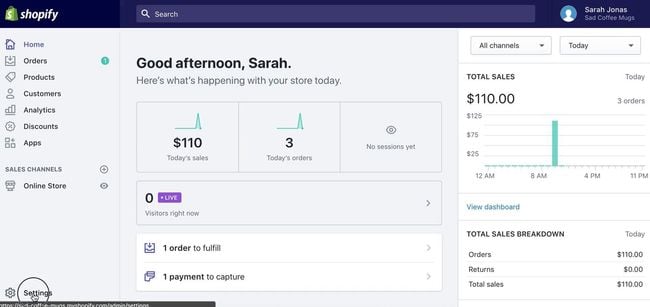
- Includes branding and domain names
- Offers dropshipping business options
- Uses Facebook ads and Google Smart shopping
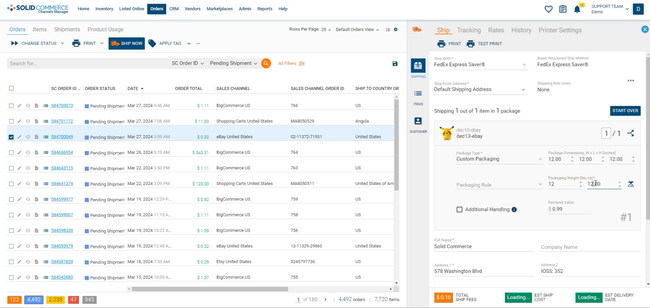
- Supports over 30 online marketplaces
- Can auto-route orders to drop shippers, 3PLs, Amazon FBA
- Supports kit & proximity-based pricing
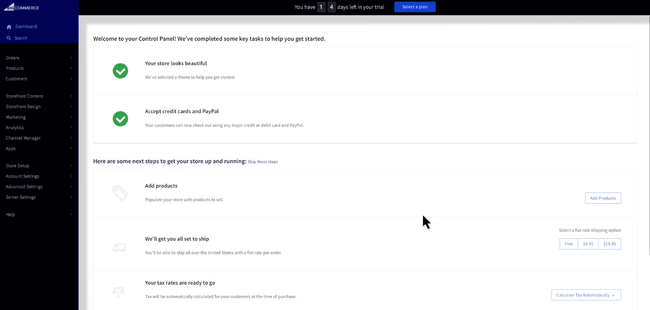
- Designed for big companies ($1M+)
- Pre-built integrations with ERP and POS
- Payment gateways include PayPal, ApplePay, and Amazon
An eCommerce software is a business management system designed for Internet retailers to increase traffic and draw in more customers. Compare some top picks to find the best software for your eCommerce store.
- Shopify: Best Overall
- Solid Commerce: Best for Multichannel Sellers
- BigCommerce: Best for Enterprise Retail & DTC Brands
- Shift4Shop: Best Free Option
- Square: Best Payment Processing
Shopify - Best Overall
Shopify is an eCommerce software with all the tools and features you need to start, run, and grow your online business. Start by buying a domain or use an existing domain for your Shopify store. Built-in marketing tools promote your products on Facebook and Google searches.
Choosing Shopify Payments instead of an external gateway means you won’t have to pay transaction fees. Try Shopify for free during a 14-day trial, and explore all the tools and services you need to start, run, and grow your business.
Solid Commerce - Best for Multichannel Sellers
Solid Commerce includes a channel manager feature that supports high-volume operations across Amazon, Walmart, eBay, and 30 other marketplaces. Rather than logging into multiple platforms, you can run your business from a single platform, from product listings to pricing.
The channel manager includes a centralized PIM where your team can organize product listings and metadata. They can use AI tools to optimize titles and descriptions and easily tweak content to meet each channel’s requirements. This can help you avoid inconsistent branding across different online storefronts.
Solid Commerce syncs stock levels across all marketplaces; you can also set minimum display thresholds to create artificial scarcity. Additionally, your staff can build pricing rules that adjust dynamically based on:
- Vendor costs
- Inventory levels
- Competitor prices
- Minimum advertised pricing enforcement
The multi-channel operations management suite starts at $300/month. Pricing varies based on how many vendors, marketplaces, and EDI connections you need.
BigCommerce - Best for Enterprise Retail & DTC Brands
BigCommerce is a tool for customizing an eCommerce store on your website. This platform’s full functionality handles orders for your listed products, payments, shipping, and integration with any marketplaces you may utilize (such as eBay, Amazon, Facebook marketplace, and more).
The software itself is a cloud-based commerce solution, reducing your dependence on infrastructure and hardware. BigCommerce is recommended for companies making over $1 million in yearly sales.
Shift4Shop - Best Free Option
Shift4Shop, formerly 3dcart, has an enterprise-grade plan with unlimited products, users, and features available for FREE. Paid plans begin at $39 per month. Over 200 built-in features, 100 free themes, and 100+ supported payment processors exist.
This free platform helps your business build an online store and use SEO to rank on Google, leading to higher sales. Once on your site, Shift4Shop lets customers shop from a list of products and add items to their cart. Finally, the platform provides a secure place for transactions to occur.
Square - Best Payment Processing
Square provides online businesses and brick-and-mortar stores with a payment processing and POS system. The Square card readers allow you to swipe credit cards on the go. Square also allows you to set up merchant services, accept payments, complete online transactions, and more from one powerful system.
Square offers payment plans for in-store hardware as a POS, including magstripe, contactless, chip readers, terminals, and registers.
What is eCommerce Software?
eCommerce software is a specialized supply chain management software to streamline online shopping. Store builder tools create user-friendly shopping carts, calculate shipping prices, and streamline payment processing. eCommerce software also helps manage inventory, calculate taxes on various currencies, and document customer interactions.
An eCommerce website can operate independently or connect with a marketplace like Amazon or eBay. Stand-alone eCommerce solutions build your virtual storefront, provide web hosting, and offer updates so your website stays on top of marketing trends. When working with a third-party eCommerce platform, you can increase your online presence to bring in more customers and achieve multi-channel sales. And distribution ERP software with built-in eCommerce capabilities can sync with your online store to ensure orders are imported into your main business management solution.
Whether you are a small business or startup expanding into online sales, an eCommerce software can streamline your journey to become an established eCommerce business.
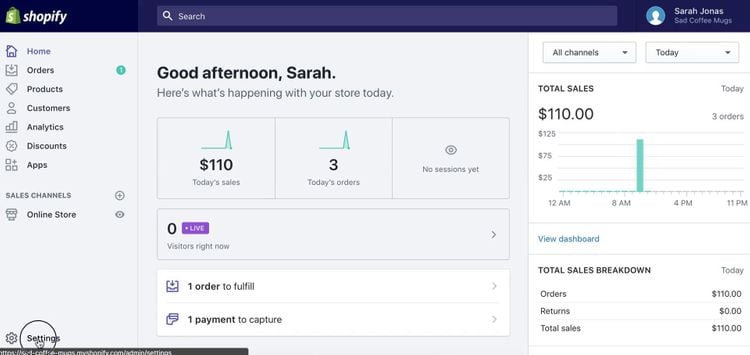
eCommerce Features and Functionality
- Website Builder: Create a branded online web store customized to your needs. Choose from preloaded themes and templates, select a domain name, create blog posts, and allow access via mobile phones and tablets. Link with your social media accounts.
- Shopping Cart: Let customers add products to a cart and checkout. Calculate carrier shipping rates, recover lost sales via abandoned checkout emails, process payments via credit card processing or PayPal, and calculate taxes.
- Point-of-Sale (POS): Allow customers to checkout and make payments online via credit card or another payment method.
- Marketing Tools: Help promote your online store via email marketing and search engine optimization (SEO). Manage paid advertisements on Google Adwords. Allow for product reviews and customer feedback to promote your products. Provide customer support and reward users with loyalty program discounts and gift cards.
- Product Management: Create product listings that accurately detail what you’re selling. Organize products by category, type, season or sale. Offer variations of products depending on size, color, materials, and more. Use drag-and-drop tools to rearrange categories.
- Sales Order Management: Get notifications on new orders, manage priority via an order dashboard, monitor the status to keep customers informed, print shipping labels, process returns, and manage customer subscriptions. Collect payments via a payment gateway.
- Inventory Management: Manage the goods being sold via your eCommerce store with a stock control system or warehouse management system (WMS). Simplifies pricing products and helps maintain the most effective stock levels. Lets you know exactly what you have on hand and where to find it.
Benefits of eCommerce Software
eCommerce software can help new online businesses or brick-and-mortar businesses moving online. Some businesses may simply be trying to capture a new market share, others may be trying to create more awareness for their brand, and others may think the ease of running an online store is worth any perceived hassles of opening a physical retail store.
Whatever route your business plans to take, there are a number of top benefits of eCommerce software:
Increase Sales
As an Internet retailer, your path to larger profits is clear: more orders. How do you acquire more orders? The simple answer is through increased traffic. This traffic building takes time and a lot of it. An eCommerce software can be thought of as a business management system designed for Internet retailers. This will free up your time so that you can build your product lists and work on increasing traffic.
Manage Your Financials With Integrated Accounting
An Internet retailer’s major advantage over any other type of company is that all of its sales-related information is natively digital. Whereas other companies gather information verbally and manually enter it into their management system, an Internet retailer receives information digitally from the start. This provides an excellent opportunity to automate your processes. Using disparate, disconnected systems will lead to inefficiency.
An integrated accounting system designed for Internet retailers will take orders placed on your website, adjust inventory counts, and use the sales data for accounting purposes. Some accounting systems will have built-in eCommerce modules to manage your entire web store. Other packages can integrate with the eCommerce software of your choice.
Regardless of the setup, searching for an accounting system designed specifically for Internet retailers will eliminate the need to manually enter data. This will, in turn, save labor costs and maximize your profitability.
Automate Order Processing
Processing orders is one of the most time-consuming tasks for an Internet retailer. Preparing shipments, adjusting inventory levels, and accounting for payment received—each step in this process takes several minutes. When this must be done for each individual order, it becomes clear that automating this workflow will save many hours. eCommerce software provides the means to handle any needed accounting and ERP-related tasks (such as distribution and inventory).
The last thing your Internet retail company can afford to do is re-enter orders from an eCommerce shopping cart to an inventory package. Why spend hours simply reentering data when an accounting system can perform this automatically? Whether you have a custom-built web store or are using an eCommerce software package, many accounting & inventory systems can integrate with your eCommerce platform.
You have the option of setting up real-time integration or batch order imports. Either method will automatically populate your inventory or accounting package with orders received. The inventory package can then automatically print inventory pick & pack slips, adjust inventory levels, and print a shipping label.
A system with integrated accounting functionality automatically books the revenue to the appropriate accounts. This integration will eliminate most of the tasks associated with order processing. You will then be free to focus on driving traffic to your sites and creating more business.
Accurately List Your Current Product Stock
One of the most frequent issues facing Internet retailers is listing new products. If you have disconnected eCommerce and inventory management packages, you will be required to set up each inventory item twice. Need to update product pricing? Without an integrated solution, this will need to be performed twice.
Finding an accounting system with an inventory application that communicates with your eCommerce system will give you a single entry point for all items. These allow you to turn products on/off on several websites. You can adjust pricing, list new items, and remove items at a single point. No time will be wasted duplicating tasks already performed.
Ensuring customer inventory availability can be very difficult without the proper controls. An accounting/ERP package integrated with your web stores means you won’t accept orders for items out of stock. An ERP package will also allow you to forecast projected demand based on historical data. This will maximize your profitability by guaranteeing you have items in stock when needed.
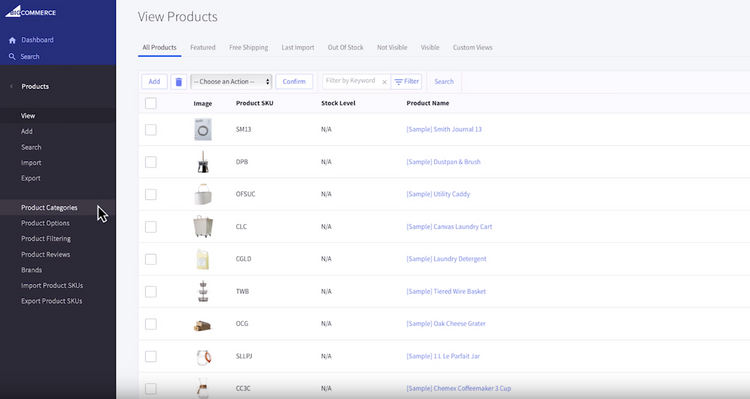
Deployment and Integration Options for eCommerce Software
Having one seamless system offering everything from customer-facing eCommerce to back-office accounting ensures you don’t waste time on business processes that could be automated. The fully integrated ERP and accounting packages contain eCommerce functionality, from product listing to shopping cart. The eCommerce functionality can integrate with all the other modules in the package.
The use of open databases by accounting software will give you the option of setting up real-time integration. Whether you’ve developed a system from scratch or are using third-party eCommerce software, you will be able to create a solution to save time and money.
Link to Your Preferred Online Marketplace
Some eCommerce software works best when you are selling through a third-party marketplace like Amazon, eBay, Etsy, and more. Both eBay and Amazon administrative accounts provide you with the basic tools necessary to list products, keep tabs on your sales, and know what active orders need to be fulfilled. For users happy with those features, they may want to consider an Amazon accounting software or an eBay accounting software.
A fully-integrated eCommerce software is more for businesses looking to import all sales data from their preferred marketplaces into one centralized location (which is most useful if you sell on more than one). This will let you combine sales from your own online store, eBay, Etsy, Amazon, and any other sales marketplaces.




















